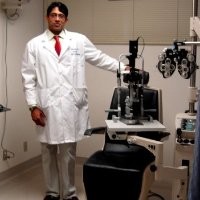In an extraordinary advancement in gene therapy, hearing has been successfully restored in children with inherited deafness. This groundbreaking study marks the first time that gene therapy has been administered to both ears, resulting in significant improvements in speech perception and the ability to locate the source of sound.
The study was led by a team of researchers at Mass Eye and Ear, a part of the Mass General Brigham healthcare system, and the Eye & ENT Hospital of Fudan University in Shanghai. The findings were published on June 5th in the renowned journal Nature Medicine.
The research team was thrilled by the phenomenal results. Zheng-Yi Chen, DPhil, a co-senior author of the study and an associate scientist at Mass Eye and Ear, highlighted the significant progress in the hearing ability of the treated children. He noted that administering the gene therapy to both ears led to improved sound localization and enhanced speech recognition in noisy environments.
The team’s aim has always been to treat both ears, which would enable children to hear in three dimensions, a crucial ability for communication and everyday tasks. Yilai Shu MD, PhD, the lead author of the study, emphasized the potential of this approach, suggesting it deserves larger international trials.
Congenital deafness affects approximately 26 million of the 430 million people worldwide who suffer from disabling hearing loss. Genetic factors account for up to 60% of childhood deafness. Children with DFNB9, a specific type of congenital deafness, are born with mutations in the OTOF gene, which prevents the production of a functional protein necessary for hearing.
The study involved five children with DFNB9, who were monitored over a period of 13 to 26 weeks. The children received injections of a functioning copy of the human OTOF gene, carried by an adeno-associated virus, into their inner ears. The procedure was minimally invasive and the first bilateral treatment took place in July 2023.
Following the procedure, all five children exhibited significant improvements in hearing, speech perception, and sound localization. Some children even displayed an ability to appreciate music. The study continues, with ongoing monitoring of the participants.
The same research team had previously delivered the world’s first gene therapy for DFNB9 in a trial involving six patients treated in one ear. The results of that trial, published in The Lancet in January 2024, showed notable improvements in hearing and speech for five of the six children.
The success of these trials is a significant milestone in gene therapy for genetic hearing loss. Despite the promising results, further research is required to refine the therapy. The bilateral study presents challenges, such as extended surgical time due to operations in both ears and a potentially stronger immune response. Future research will also assess the benefits of gene therapies and cochlear implants in larger randomized trials.
Currently, there are no drugs available to treat hereditary deafness, opening a window for innovative interventions like gene therapies. Researchers are hopeful that this therapeutic approach can be extended to deafness caused by other genes or non-genetic causes.


Comments are closed for this post.